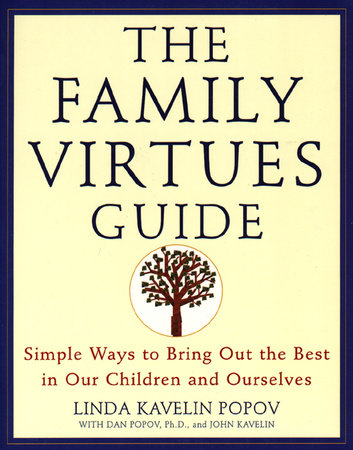When my children were young, about 10 and 4 years old, I came across a book which fascinated me, “The Virtues Guide: a Family Handbook” by Linda Kavelin Popov and Dan Popov, with illustrations by John Kavelin. I bought the book and when I got home I started reading and have been a fan of the book ever since.
The book is divided into two major sections. The first section is a guide for parents and shows some “simple ways to bring out the best in our children and ourselves”. In this section the authors have five basic strategies.
Strategy 1: Recognize the Teachable Moments – A parent is an educator, a teacher, but you have to look out for the right moments to teach lessons. There are only certain moments when children are open to learning.
Strategy 2: Speak the Language of the Virtues – Children need to learn positive actions and what to do. The virtues in the book gives a vocabulary for what is good behaviour and parents need to use these words in their daily conversations.
Strategy 3: Set Clear Boundaries – The parent has to set clear boundaries and ground rules which may vary depending on the age of the children.
Strategy 4: Honor the Spirit – The parent is a guide to his/her child/ren and needs to share skills, family stories, special rituals, etc. This is also practicing respect for children who are human beings that need to find their place in the world.
Strategy 5: Offer the Art of Spiritual Companioning – Children have to learn how to make choices and handle their feelings. It is important for parents to listen and ask the right sorts of questions to help a child figure things out for themselves.
The second section of the book has 52 virtues, one for each week of the year. For each virtue there is an explanation of what it is, why you should practice it, how to practice it and signs of success. This section of the book uses the most pages in the book. Some examples of the virtues are cleanliness, confidence, courage, friendliness, trustworthiness, etc.
In addition there are discussion questions, guidelines on how to use the book and some do’s and don’ts about bringing up children.
The original edition of the book, “The Virtues Guide: A Family Handbook” came out in 1991 and we used the edition that came out in 1993. The current edition of the book is called “The Family Virtues Guide” and was published in 1997.
Why am I writing this, so many years later? One of the ways of using the virtues in the family is to pick one virtue each week and then practice this virtue during the week and become more aware of it. My husband and I still continue this practice, choosing each Sunday a virtue from a pack of 100 virtue cards. We then try to practice this virtue during the coming week and discuss what we can do to improve our own behaviour.
The world has changed a lot since the 1990s, but the need for the virtues remains the same. Today you can access information about The Virtues Project at https://www.virtuesproject.com/ . I recommend both the book and the website.

